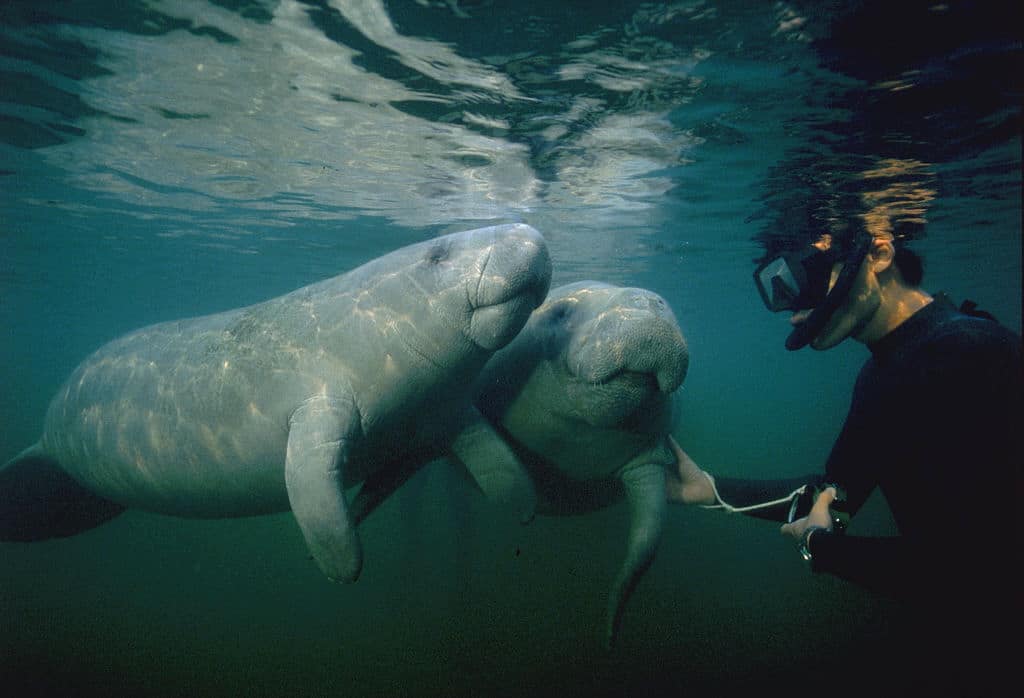This post was originally published on Eco Watch
The U.S. Fish and Wildlife Service (USFWS) has proposed new revisions and additions to critical habitats for West Indian manatees near Florida and Puerto Rico.
The proposal includes a revised 1,904,191 acres for Florida manatees plus new habitat protections spanning 78,121 acres for Puerto Rico manatees.
“The Service is dedicated to the recovery and protection of manatees, which face significant threats such as declining food sources and water pollution,” southeast regional director Mike Oetker said in a statement. “Critical habitat designations ensure that federal agencies and the public are informed of the species habitat needs and better able to reduce threats and contribute to their long-term survival.”
As Inside Climate News reported, nearly 2,000 Florida manatees died from 2021 to 2022, and another 130 manatee calves have died in 2024. Part of the threat to these manatees is pollution, which has affected their food sources. Officials began a program to feed manatees seagrasses in 2021, which was deemed a success in 2022.
The proposal for new habitat protections focuses on seagrass as an essential element for the manatees’ survival, particularly for the Antillean manatee found near Puerto Rico.
But other threats loom for the vulnerable manatees. USFWS noted that habitat loss, coastal development and human interactions, including boat strikes, all threaten these animals. Climate change, which can contribute to algal blooms, is also a threat to the manatees. Further, climate change can contribute to increasing frequency and strength of hurricanes, such as Hurricane Helene currently moving through the Gulf Coast.
As USA Today reported, hurricanes can cause manatee strandings, and they are also at risk from injury from storm-related debris in the water. Powerful hurricanes can also destroy the seagrasses that manatees depend on for food.
Manatees are protected by the U.S. Endangered Species Act and the Marine Mammal Protection Act. According to the National Oceanic and Atmospheric Administration (NOAA), West Indian manatees — along with West African and Amazonian manatees — are considered vulnerable to extinction.
USFWS is accepting public comments on the proposal until November 25. In the meantime, as Hurricane Helene makes landfall, the Florida Fish and Wildlife Conservation Commission is calling on the public to report any stranded or injured manatee sightings by calling 888-404-3922. The commission emphasized not to touch stranded wildlife.
“The best way people can stay safe and help wildlife under storm conditions is to be alert and give wildlife their space,” the commission said.
The post USFWS Proposes Expanding Habitat Protections for Florida Manatees appeared first on EcoWatch.




0 Comments